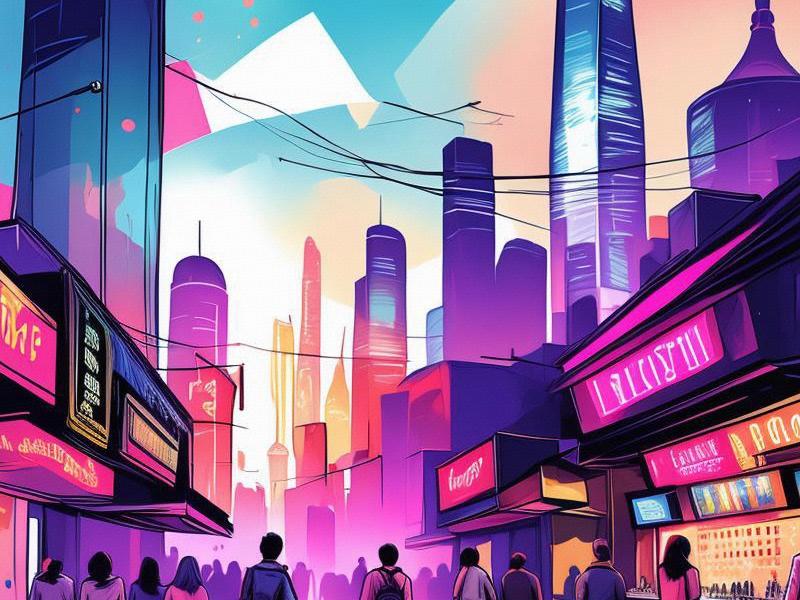This article delves into the vibrant world of Shanghai's entertainment clubs, exploring their role in the city's nightlife, the impact of recent regulations, and their influence on urban culture and the economy.

In the heart of Shanghai, where the neon lights flicker and the hum of the city never ceases, entertainment clubs stand as a testament to the city's dynamic and ever-evolving nightlife. These establishments, ranging from high-end bars to pulsating nightclubs, have long been a magnet for locals and tourists alike, offering a blend of music, dance, and social interaction.
The entertainment club scene in Shanghai is not just about revelry; it's a microcosm of the city's broader cultural and economic landscape. Over the years, these clubs have evolved, reflecting changes in societal norms, economic trends, and regulatory frameworks. The recent years have seen a significant transformation in this industry, marked by stricter regulations aimed at curbing excessive drinking, drug use, and other vices that had begun to tarnish the image of some venues.
One of the most notable changes has been the implementation of the "ban on entertainment venues operating past midnight" policy. This regulation, which was introduced to address public concerns over noise pollution and safety issues, has forced many clubs to adjust their business models. Some have opted to close down, while others have adapted by offering extended services such as day-time events, live music shows, and themed parties that cater to a more diverse audience.
Despite these challenges, the core essence of Shanghai's entertainment clubs remains unchanged. They continue to be hubs of creativity and expression, where people from all walks of life come together to celebrate life. The clubs are a melting pot of cultures, with international DJs spinning tracks that blend global beats with local flavors. This fusion of sounds and styles has made Shanghai a sought-after destination for music enthusiasts and partygoers from around the world.
爱上海论坛 The economic impact of these clubs cannot be overstated. They contribute significantly to the city's tourism industry, attracting visitors who are eager to experience the unique nightlife that Shanghai has to offer. Additionally, the clubs provide employment opportunities for a wide range of professionals, from DJs and bartenders to security personnel and event organizers.
However, the industry also faces challenges that go beyond regulatory hurdles. The rise of online entertainment and changing consumer preferences have led to a decline in foot traffic for some venues. To stay relevant, clubs are investing in innovative marketing strategies and technological advancements. Virtual reality (VR) experiences, augmented reality (AR) cocktails, and social media campaigns are just a few examples of how these establishments are keeping up with the times.
Moreover, the COVID-19 pandemic has had a profound impact on the entertainment sector, forcing many clubs to temporarily shut their doors or operate at reduced capacity. The pandemic has accelerated the adoption of contactless technologies, such as mobile ordering and payment systems, which are now being integrated into the operations of many venues. As the world continues to navigate the post-pandemic landscape, the entertainment club industry in Shanghai is poised for a comeback, with a renewed focus on health and safety measures.
The regulatory environment surrounding entertainment clubs in Shanghai is set to become even more stringent in the coming years. The government has announced plans to introduce new measures aimed at enhancing the quality of entertainment services and ensuring the well-being of patrons. These include mandatory background checks for employees, regular health inspections, and stricter enforcement of licensing requirements.
上海品茶论坛
While these regulations are expected to improve the overall standard of the industry, they may also pose additional challenges for operators. Compliance with the new rules will require significant investment in terms of time and resources. However, industry experts believe that these measures will ultimately benefit the sector by fostering a safer and more sustainable environment for both businesses and consumers.
The future of Shanghai's entertainment clubs looks promising, as they continue to adapt to the changing dynamics of the market. The integration of technology, the emphasis on health and safety, and the ongoing efforts to maintain a high standard of service are all factors that will contribute to the growth and success of the industry.
In addition to their economic significance, entertainment clubs play a crucial role in shaping the cultural identity of Shanghai. They serve as platforms for artistic expression, hosting events that showcase the works of local musicians, artists, and performers. These gatherings not only enrich the cultural fabric of the city but also foster a sense of community among participants.
上海娱乐联盟 The clubs also reflect the cosmopolitan nature of Shanghai, where different cultures converge to crteeaa unique and vibrant atmosphere. International collaborations and cross-cultural exchanges are common, leading to the emergence of new trends and styles that resonate with the city's diverse population.
As Shanghai continues to grow and evolve, the entertainment club scene will undoubtedly remain an integral part of its urban landscape. The city's ability to balance tradition with innovation, and to adapt to the changing needs of its residents and visitors, will be key to sustaining the appeal of its nightlife.
In conclusion, Shanghai's entertainment clubs are more than just places to party; they are symbols of the city's spirit and resilience. Through the challenges and changes they have faced, these establishments have demonstrated their ability to adapt and thrive. As the city looks to the future, the entertainment club industry will continue to play a vital role in shaping the cultural and economic narrative of Shanghai.